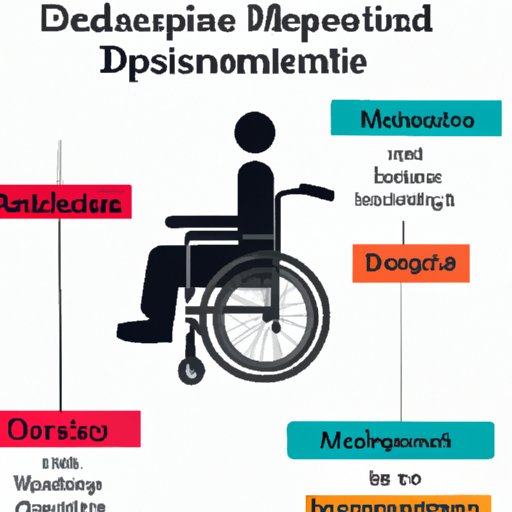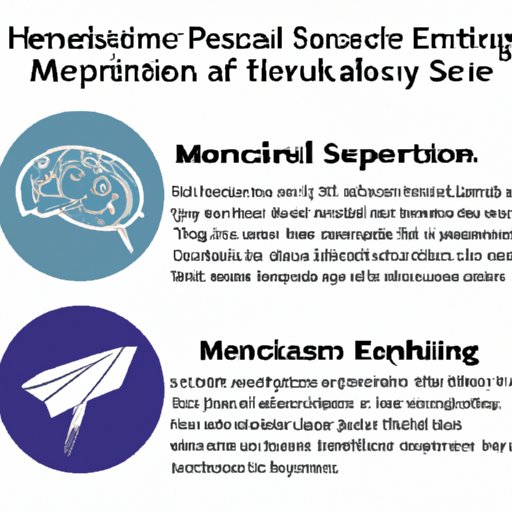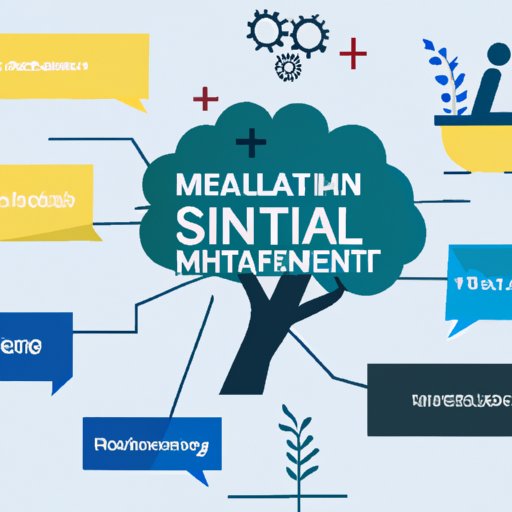
Introduction: Exploring the Connection Between Mental Health and Disability
Mental health is an important part of our overall wellbeing, yet it is often overlooked or stigmatized. Mental health conditions are increasingly being recognized as disabilities, and there is a growing awareness of the need to provide accommodations and support services for people living with mental health conditions. In this article, we will explore the connection between mental health and disability, and examine the challenges faced by those living with mental health conditions.
Examining the Legal Definition of Mental Health as a Disability
The legal definition of mental health as a disability varies from country to country. In the United States, the Americans with Disabilities Act (ADA) defines a disability as “a physical or mental impairment that substantially limits one or more major life activities”. This definition applies to people living with mental health conditions such as anxiety, depression, bipolar disorder, and schizophrenia, among others.
The ADA also states that a person with a disability is someone who has a history of a disability, is regarded as having a disability, or is perceived as having a disability. This means that even if a mental health condition does not significantly limit a person’s life activities, they may still be considered disabled under the ADA.
How does this definition differ from other disabilities? The ADA also includes physical disabilities, sensory disabilities, and cognitive disabilities. While mental health conditions are included in the definition of a disability, they are not necessarily the same as physical disabilities or cognitive disabilities. For example, someone with a mental health condition such as depression may experience symptoms such as fatigue, difficulty concentrating, and feelings of hopelessness, but these symptoms may not be the same as someone with a physical disability or cognitive disability.

The Impact of Mental Health Conditions on Everyday Life
Mental health conditions can have a significant impact on a person’s everyday life. People living with mental health conditions may experience a range of symptoms, such as changes in mood, sleep disturbances, difficulty concentrating, and changes in energy levels. These symptoms can make it difficult for a person to perform everyday tasks, such as going to work or school, taking care of personal hygiene, or engaging in social activities.
In addition to the physical symptoms, people living with mental health conditions may also face emotional challenges. For example, a person with depression may feel hopeless or have difficulty finding joy in things that used to bring them pleasure. A person with an anxiety disorder may experience feelings of fear or panic in situations that make them feel unsafe or out of control. These emotional challenges can make it difficult for a person to engage in activities that require mental energy, such as problem-solving or making decisions.
Understanding the Social Stigma Around Mental Health and Disability
There is a strong social stigma surrounding mental health conditions and disability. People living with mental health conditions may be judged or viewed negatively by others, which can lead to feelings of shame or isolation. This stigma can prevent people from seeking help or speaking openly about their mental health struggles.
The stigma around mental health and disability can also lead to discrimination in the workplace or in social settings. For example, a person with an anxiety disorder may be passed over for a job opportunity because of their condition, or a person with depression may be excluded from social activities due to the negative perceptions of their condition.

How Mental Health Can Be Addressed Through Accommodations and Support Services
Accommodations and support services can help people living with mental health conditions manage their symptoms and participate in everyday activities. Accommodations can include changes to the environment or the way tasks are completed, such as providing a quiet workspace for someone with an anxiety disorder or allowing for flexible hours for someone with depression. Support services can include access to mental health professionals, such as therapists or counselors, as well as peer support groups or online resources.
These accommodations and support services can help people living with mental health conditions live fuller, more productive lives. For example, a person with depression may benefit from therapy and medication to manage their symptoms, while a person with an anxiety disorder may find that joining a support group helps them develop coping skills and build a sense of community.
Conclusion: Summary of the Main Points
This article explored the connection between mental health and disability, examining the legal definition of mental health as a disability, the impacts of mental health conditions on everyday life, the social stigma surrounding mental health, and how it can be addressed through accommodations and support services.
It is important to remember that mental health conditions are real and should be treated with the same respect and understanding as any other disability. By providing accommodations and support services, we can help people living with mental health conditions live fulfilling and productive lives.

Final Thoughts on Mental Health and Disability
Mental health is an integral part of our overall wellbeing, and it is important to recognize that mental health conditions can be disabling. By understanding the connection between mental health and disability, and providing appropriate accommodations and support services, we can create a more inclusive and supportive environment for people living with mental health conditions.
As Dr. Doreen Granpeesheh, founder and CEO of the Center for Autism and Related Disorders, said, “Mental health is just as important as physical health and should be taken seriously. We must ensure that individuals with mental health conditions receive the accommodations and support they need to reach their full potential.
(Note: Is this article not meeting your expectations? Do you have knowledge or insights to share? Unlock new opportunities and expand your reach by joining our authors team. Click Registration to join us and share your expertise with our readers.)
